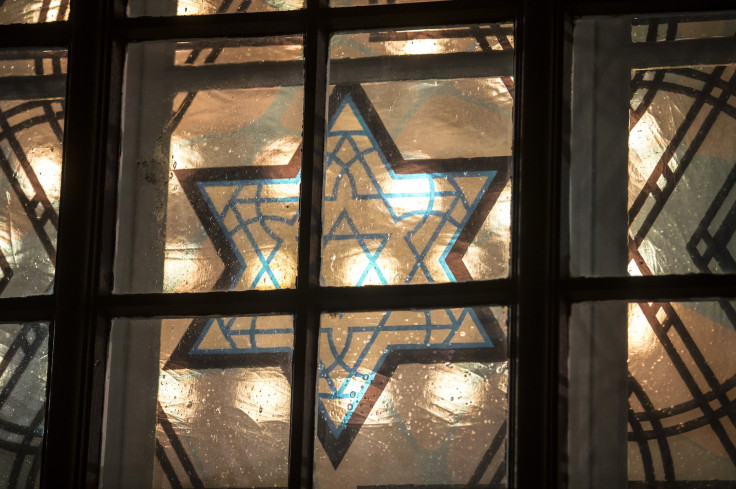What Is Kristallnacht? About Nazi Germany's Deadly Attacks On Jews In 1938

Kristallnacht, commemorated Nov. 9 and 10, marked a major turning point in Nazi Germany's persecution of Jews leading up to World War II. It was a wave of anti-Jewish violence that was triggered, ostensibly, by the shooting on Nov. 7, 1938, in Paris of a German diplomat, Ernst vom Rath, by a student named Herschel Grynszpan, who was a Polish Jew and refugee from Germany.
Two days later, vom Rath died, and Heinrich Müller, the chief of the Gestapo, the Nazi secret police, announced that "in shortest order, actions against Jews and especially their synagogues will take place in all of Germany." The Night of Broken Glass had begun.
That night, from Nov. 9 to 10, 1938, and in some places for several days after, more than 1,000 synagogues were destroyed, burned or damaged, some 7,500 Jewish businesses were looted and at least 91 Jews killed, according to the Encyclopaedia Britannica. Roughly 30,000 Jewish men were arrested, and Jewish homes, hospitals and schools were attacked and vandalized.
The term Kristallnacht (Crystal Night) refers to the broken glass that littered the streets of Germany, Nazi-annexed Austria, and parts of occupied Czechoslovakia after the attacks.
Join KHRCA on 11/10 to commemorate #Kristallnacht: The Moment that Changed Everything https://t.co/vIMWGjgPdH #CUNY pic.twitter.com/fA0RSHgCH9
— Queensborough | CUNY (@QCC_CUNY) November 3, 2015
German officials said, after the violence, that the attacks had been in response to vom Rath's assassination, even though in the preceding five years of Adolf Hitler's rule, the Nazis had organized boycotts of Jewish businesses, purged Jews from the government and professions, passed the Nuremberg laws that revoked Jews' citizenship and persecuted them in all manner of other ways.
And just days before the shooting of vom Rath, Germany had exiled thousands of Polish Jews living in Germany back to Poland, which did not want them. Among them were the parents of Grynszpan, the student who shot vom Rath, and according to the U.S. Holocaust Memorial Museum, he acted in a desperate attempt to seek revenge.
German officials said the "demonstrations" of Kristallnacht should not be deliberately prepared, but if they happened spontaneously, they should not be stopped. Meanwhile, the Hitler Youth and stormtroopers of the Sturmabteilung attacked only Jews and their property.
Many of the Jews they rounded up and detained were put in concentration camps. Kristallnacht was the first time the Nazis carried out mass arrests of Jews simply because they were Jewish, and in retrospect, it ominously portended the Holocaust.
After he was arrested in France, Grynszpan said, according to PBS, "Being a Jew is not a crime. I am not a dog. I have a right to live and the Jewish people have a right to exist on earth. Wherever I have been I have been chased like an animal."
© Copyright IBTimes 2024. All rights reserved.












